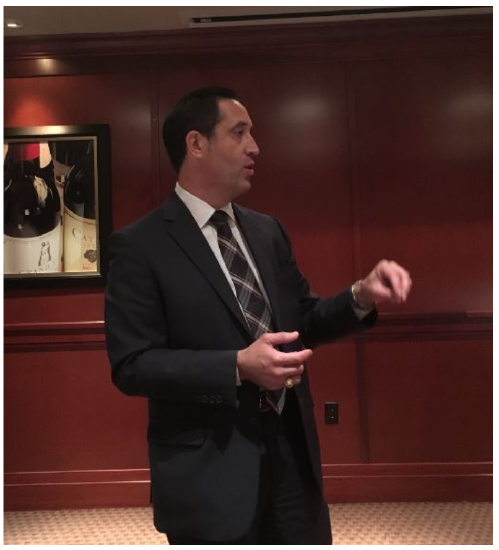7.6: Other Players in the Legislative Process
- Page ID
- 129170
While the governor of Texas has specific legislative powers, and the lieutenant governor— though not a member of the Senate—is the most important individual in the Senate chamber, other state officials and agencies have a role to play as well.
Government Officials and Agencies
The Comptroller of Public Accounts (Figure 7.11) plays a vital role in the legislature’s constitutional duty to produce a balanced budget each session. Before the session begins, the Comptroller issues an official document called the Biennial Revenue Estimate (BRE), which is the preliminary estimate of the amount of money the state is expected to receive in revenue during the upcoming two-year budget period. This is the legislature’s target spending limit as they prepare the biennial appropriations bill. Once an appropriations bill is approved by the legislature, it must be certified by the Comptroller—his official agreement that the state will have enough revenue to pay for everything in the budget. Without his certification, the budget cannot take effect.

Every state agency and official has a role the budget process. While state officials and employees are prohibited from lobbying per se, many take a significant interest in the deliberations over their agency budgets. Executive branch officials often become involved in bills affecting their program environment as well. Though they cannot testify for or against any bill, they frequently testify on proposed legislation as resource witnesses at committee hearings, generally making their opinions clear.
Interest Groups
When a group of lobbyists from an especially well-funded interest group began frequenting a particular section of the House Gallery (the balcony overlooking the House chamber) a few years ago during floor debate each day, cynics began referring the area as the “owner’s box” (a reference to the luxury boxes at racetracks where racehorse owners are invited to watch the event). There is an ongoing and spirited debate over the extent to which interest groups influence state legislature, but legislators do depend heavily on interest groups as they make decisions about legislation. This is not necessarily a bad thing. During their 140-day session, legislators will typically consider over 6000 bills on subjects from abandoned vehicles to youth camps. Listening to those whose livelihoods will be most impacted by a proposed change in law is the only way to learn the true impact of the change, and to avoid unintended consequences.
Staff
The Texas Capitol Building is exactly five blocks south of the University of Texas at Austin, which is teeming with smart, young government majors who work cheap. Accordingly, legislators in Texas—part-time employees themselves—have not generally been assisted by long-term, career staffers like their Washington counterparts. Still, young as they may frequently be, legislative staffers can exert a surprising amount of influence. They often control the flow of information and access by constituents and lobbyists, and a staffer with an interest in an issue can make sure that issue gets shuffled to the top of the stack (or to the bottom) as their boss juggles more issues than can be given full attention in the time allowed.
More long-term, career staffers often work for the House Research Organization, the Legislative Budget Board and the Legislative Council, which provide important bipartisan research and legal drafting expertise on complex issues.
Media
Even as the number of daily newspapers in Texas—and throughout the United States—has dwindled, and the number of papers with Austin bureaus has dwindled even further, the non- profit Texas Tribune has tried to pick up the slack, providing extensive coverage of the state legislature. The press has traditionally taken no interest in the vast majority of bills considered by the legislature—even those with significant consequences for Texans. When the occasional issue does catch the interest of Capitol reporters, however, the attention can be relentless. In early 2021, following an unprecedented winter storm that interrupted electric power to millions of Texans, media attention examination of the management of the state’s electric power grid made it the legislature’s most important issue—even in a legislative session with a budget deficit and a contentious redistricting battle awaiting lawmakers.
The Public
Legislators and lobbyists alike frequently opine that any actual constituent carries more weight in the legislature than the best lobbyist. Legislators are in the business of getting reelected. Pleasing constituents is a high priority for legislators, and angering constituents is something to be avoided whenever possible. The legislative process in Texas is remarkably open to ordinary Texans. In non-pandemic years, Texans can generally wander into their state representative or senator’s office without an appointment and share their thoughts on an issue with their legislator—or at least to a staff member if the legislator is not available. Before it can become law, every bill receives a public hearing before a House committee and a Senate committee, and anyone can sign up to testify. In Texas, ordinary citizens can play a tremendously important role in the success or failure of individual bills through their testimony at committee hearings and through contact with their elected representative and senator on bills that reach floor debate.

